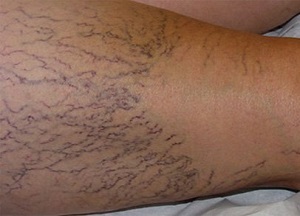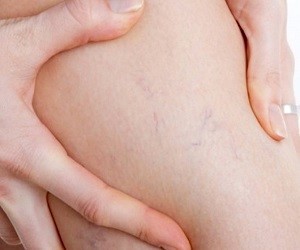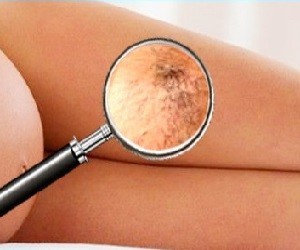
Almost all women have heard of varicose veins. Twenty-year-old girls are also susceptible to this disorder. But most face this problem during pregnancy, especially women with a hereditary predisposition.
At first the defect is only cosmetic, but pain appears over time. In advanced conditions, the disease can develop into thrombophlebitis (a common complication of varicose veins), harm the mother and unborn child. How to avoid such consequences, the best recipes for the treatment of varicose veins and to prevent the disease - you will learn all this from the following material.
Causes of occurrence
Carrying out a baby is a difficult ordeal for a woman, especially in the second half of her pregnancy. During this period, the lower torso is in constant tension, withstanding considerable loads. Blood vessels cannot cope with the accumulated labor and burst, this is the main cause of varicose veins on the legs of expectant mothers.
Furthermore, the blood flow increases to feed not one organism, but two at the same time, in some cases three! The uterus increases in volume, pressure increases, which interferes with the natural blood flow, this is another important factor that causes this disease.
There are other reasons for the development of the disease:
- rapid weight gain, overweight;
- repeated pregnancy;
- physical inactivity, sedentary work;
- changes in the hormonal background;
- hereditary predisposition;
- bad habits;
- taking long sunbaths.
Also, during pregnancy, all latent or chronic diseases are exacerbated, so resort to disease prevention. If the problem persists, use the recipes for the treatment.
First signs and symptoms
This disease does not manifest itself at first, but over time you will definitely feel discomfort and other signs:
- veins swell, visible to the naked eye;
- various types of mesh are formed: this is the result of the rupture of blood vessels;
- in the evening there is severe fatigue in the legs, swelling;
- the pain does not go away in the morning, the situation is aggravated;
- Varicose veins occur not only on the legs, but also in the pelvic area (uterus, labia). In such a situation, only a doctor will identify this ailment, but if you feel itching, pain in the groin, inability to sit for a long time, immediately consult a gynecologist;
- in advanced cases, patients have cramps in the lower limbs.
If you experience any of the above symptoms, you should inform your doctor, who will clarify the diagnosis, prescribe competent treatment.
Disease classification
Pregnant women have the following types of varicose veins:
- lower limbs. This type is the most common, ved legs are a support for the whole organism, they have to cope with the load that has appeared;
- vagina. It is most often diagnosed during the second pregnancy, it is worth the immediate intervention of doctors, because such a pathology can complicate childbirth;
- uterus. This problem is faced by women who have had abortions, have had sexually transmitted infections or are due to a genetic predisposition;
- in the groin. It is accompanied by severe pain in this area, it interferes with normal walking.
Avoid self-diagnosis and self-medication, think about the future baby, only the doctor will accurately determine the type and course of further actions.
Exercises and effective treatments

Consult your gynecologist, the best option would be if he writes a referral to a narrow specialist - phlebologist (a doctor who treats chronic venous insufficiency or CVI).
Such a doctor, depending on the stage of development, the location of the pathology, will prescribe the following drugs:
- topical application of ointments and gels;
- taking special pills (phlebotonics), which strengthen the walls of blood vessels from the inside, help to recover already damaged;
- anticoagulants. These drugs help thin the blood, prevent blood clots, which clog blood vessels, which burst over time. They are used in extreme cases, as this can lead to detachment of the placenta, bleeding;
- special underwear. The doctor will select for you compression tights, stockings, with a supportive effect. They can be worn for prophylaxis (70 den) or for treatment (100-280 den);
- all kinds of traditional medicine will help with the expansion of the veins in the legs, read the recipes below.
Important!If you find severe edema, redness in the swollen area of the veins, sharp pain, fever, do not hesitate, but call an ambulance!
Upon arrival at the hospital, inform the staff of your problem, also do not start this process after the baby is born.
Useful gymnastics for expectant mothers, these exercises will help relieve fatigue, reduce pain and swelling:
- Sit on a chair, move your feet in a circle, do not lift your heels off the floor;
- Stand straight, stretch your left leg forward, rotate first with the foot, then with the whole leg, alternate legs;
- It is useful to walk on tiptoe, turn around the apartment 3-4 times, then walk on the outside and inside of the foot;
- Sit on a surface that is comfortable for you, lift your heels off the floor, the socks must remain pressed to the floor, then return to the starting position.
Do each of these exercises 10 times, preferably 3 sets. Consider your health and the duration of pregnancy, you shouldn't try too hard.
Varicose veins can be treated with surgery, but in extreme cases. Such manipulations are strictly prohibited for pregnant women.
Treatment with traditional medicine

Some women only trust doctors, but there are methods tested by our mothers and grandmothers. These recipes do not contain chemicals, everything is only natural, so there are no special contraindications for pregnant women, with the exception of individual intolerance to some components.
List of the most effective remedies for varicose veins:
- apple cider vinegar.Can be used externally and taken internally. Rub some of this product on your skin every night, to enhance the effect, drink 1 glass of water with 1 teaspoon of vinegar after meals. Do not expect a quick effect, such a disease requires long-term treatment. You will see the first positive results no earlier than a month;
- green tomatoes.Cut this fruit into circles, attach it to the swollen veins, wrap it with an elastic bandage. Carry out such manipulations every evening, wash off the compress with water in the morning. The course of treatment is about 5-6 months, but it is worth it;
- potatoes.This product is in every kitchen, grate 5 fresh potatoes, apply on the feet, wrap with plastic wrap, keep for about four hours. Such a compress immediately relieves pain, over time the veins will decrease;
- horse chestnut.Prepare a tincture with this ingredient: pour the inflorescences (50 g) with vodka (1 liter), let it brew for 2-3 weeks in a cool place. Filter before use, take 2 tablespoons a day, the course of treatment is ten days, then take a 5-day break. After 3-4 courses, you will notice a significant improvement in the condition of your veins;
- lilac tincture.Soak 200 g of plant leaves in 800 ml of vodka, leave for about a week. After the expiration of the period, strain, rub the legs with the resulting solution. Perform such manipulations every evening until complete recovery;
- nettle.This treatment method is long (about a year), but absolutely safe. Drink a decoction of nettle every day for 1 glass (stop reception 3-4 times). Potion recipe: 2 tbsp. pour spoons of the dried plant with 1 cup of boiling water, leave for 25 minutes. Drink the broth for 1 month, then take a break for 14 days, then repeat the course of treatment;
- apples.Everyone knows a variety like Antonovka. Take 3 of these fruits, throw in 1 liter of boiling water, wait 30 minutes, mash the apples into the gruel, strain the broth. Mix the resulting infusion with vodka, honey (1: 1: 1). Take 1 tablespoon on an empty stomach. spoon in the morning and before bedtime in the evening. This treatment lasts about a month, you will notice an excellent result;
- silver wormwood.Thoroughly grind the fresh flowers of this herb into a homogeneous mass + the same amount of sour milk, mix the mixture. Lubricate the feet with the resulting gruel, cover with gauze. Carry out this procedure for no more than 5 days, take a break for 3-4 days, then you can repeat the course of treatment another 2-3 times;
- Kalanchoe.Mix the dried leaves of this plant with vodka (1: 1), leave for 1 week, stir the contents periodically. Rub the dye into the skin of the legs, the pain will disappear, a feeling of lightness will appear, the veins will become less noticeable. This type of treatment also takes a long time (3-4 months).
Use these products only after consulting your doctor. You can combine medications with home therapy. You should remember to follow the diet (eat grains, vegetables, not fatty meat), so as to help the body cope with the disease.
Preventive measures

If you did not have varicose veins before pregnancy, there is no hereditary predisposition and you are not overweight, it will not be difficult for you to take all preventive measures.
Tips for avoiding chronic venous insufficiency during pregnancy:
- give preference to shoes, with low heels, listen to your feelings, you should be comfortable;
- go swimming, it will help not only in the prevention of varicose veins, but also other diseases. Water treatments are also useful for the fetus;
- sleep on the left side after the 1st trimester. This will reduce the pressure on the vein on the right side;
- do not cross one leg over the other while sitting, this will compress the vessels;
- do not stay in one position too long, they are constantly in motion, this is very useful for the baby. Of course, if there are no particular contraindications;
- do not wear tight elastics, give up on socks for a while, with tight elastics and other pressing wardrobe items;
- observe your diet, avoid sweet, salty and fatty foods. Also leave chips and soda in the past.
It will be useful if a qualified specialist will examine you during pregnancy planning, so it will be much easier to prevent or treat small deviations from the norm, because most drugs cannot be used during pregnancy.
Monitor the condition of your body, if you experience any unpleasant symptoms, contact your doctor immediately. Then you and your baby will be absolutely healthy.
























